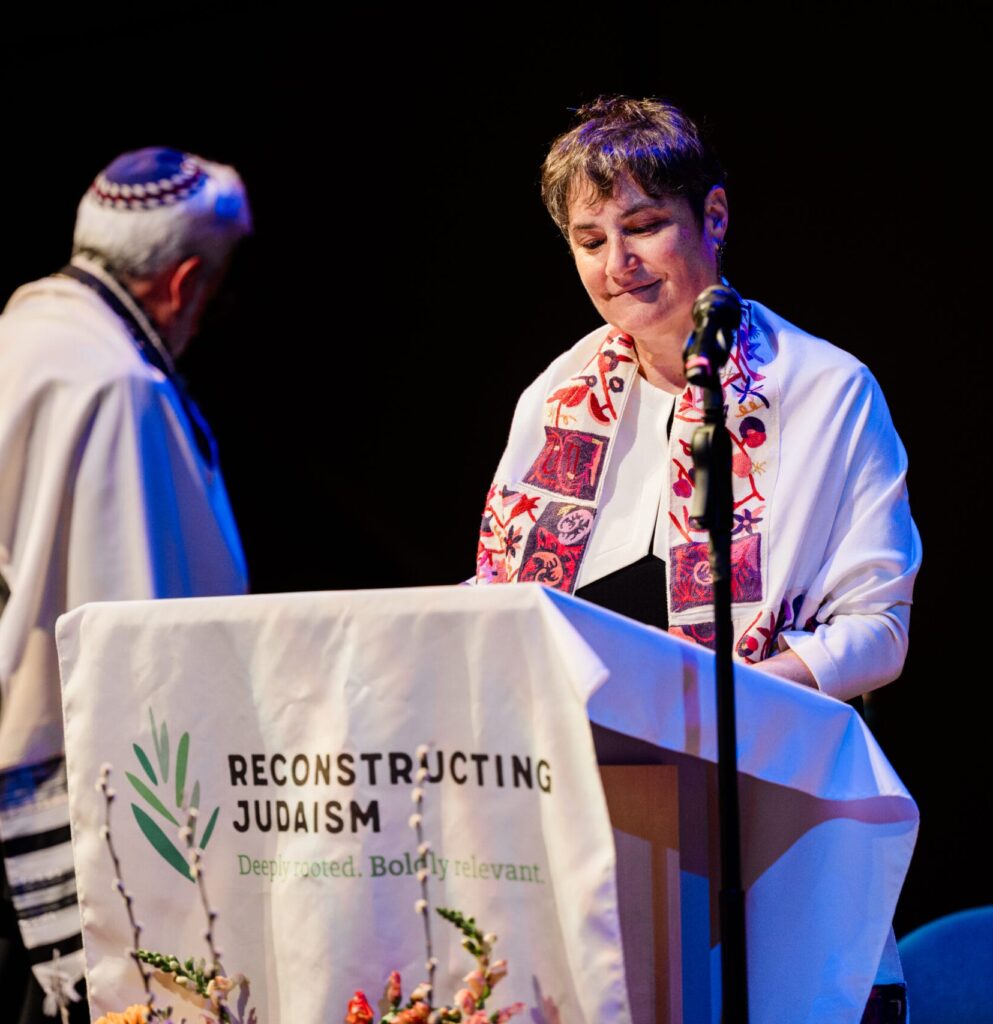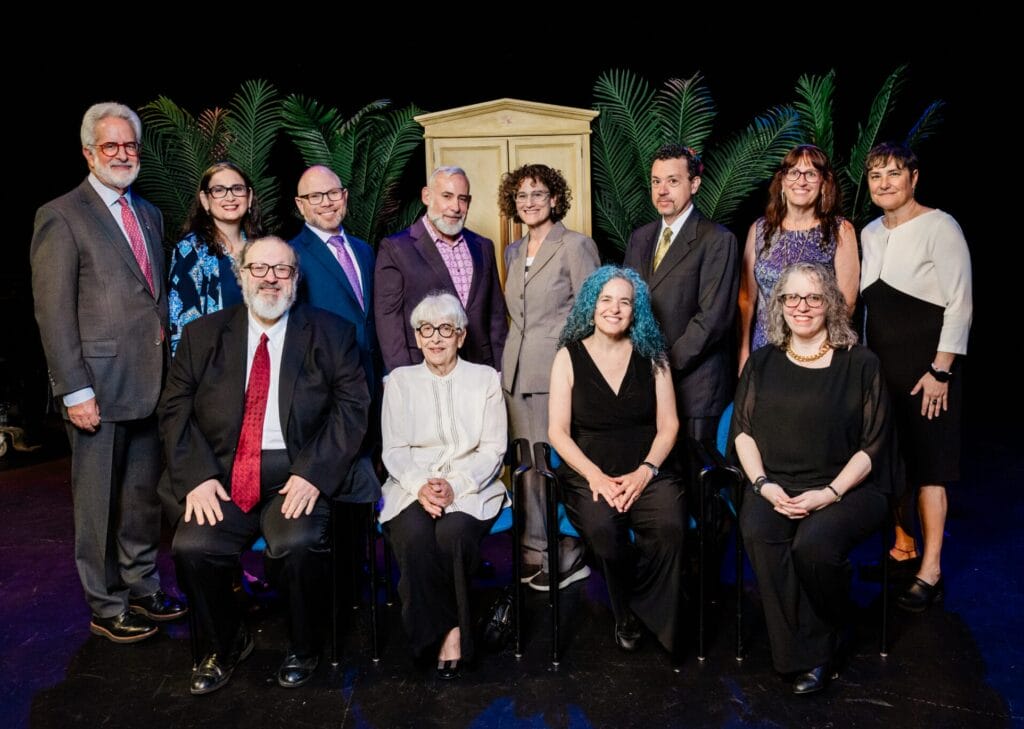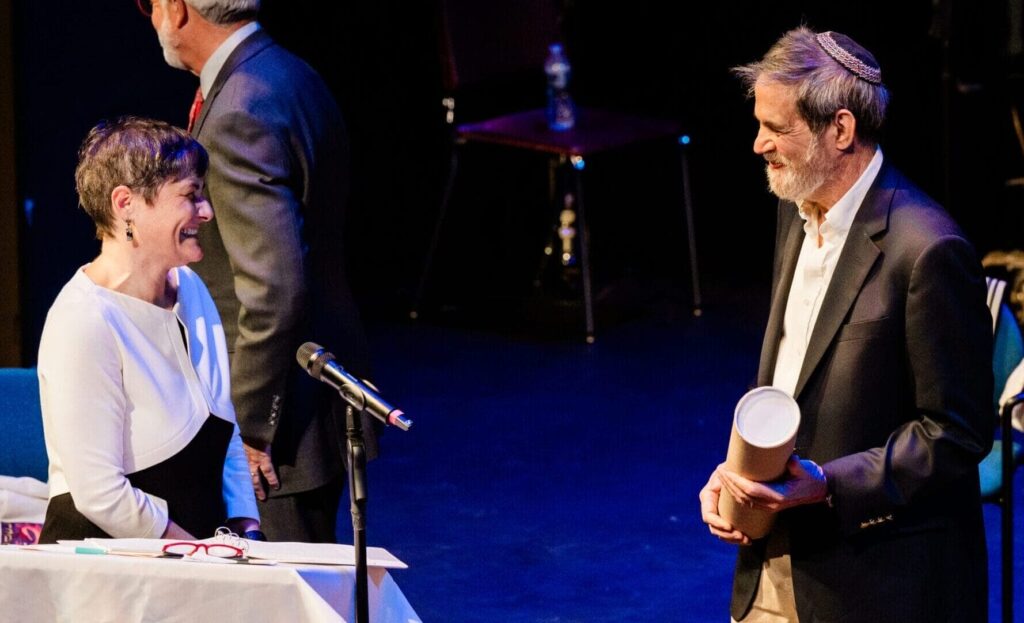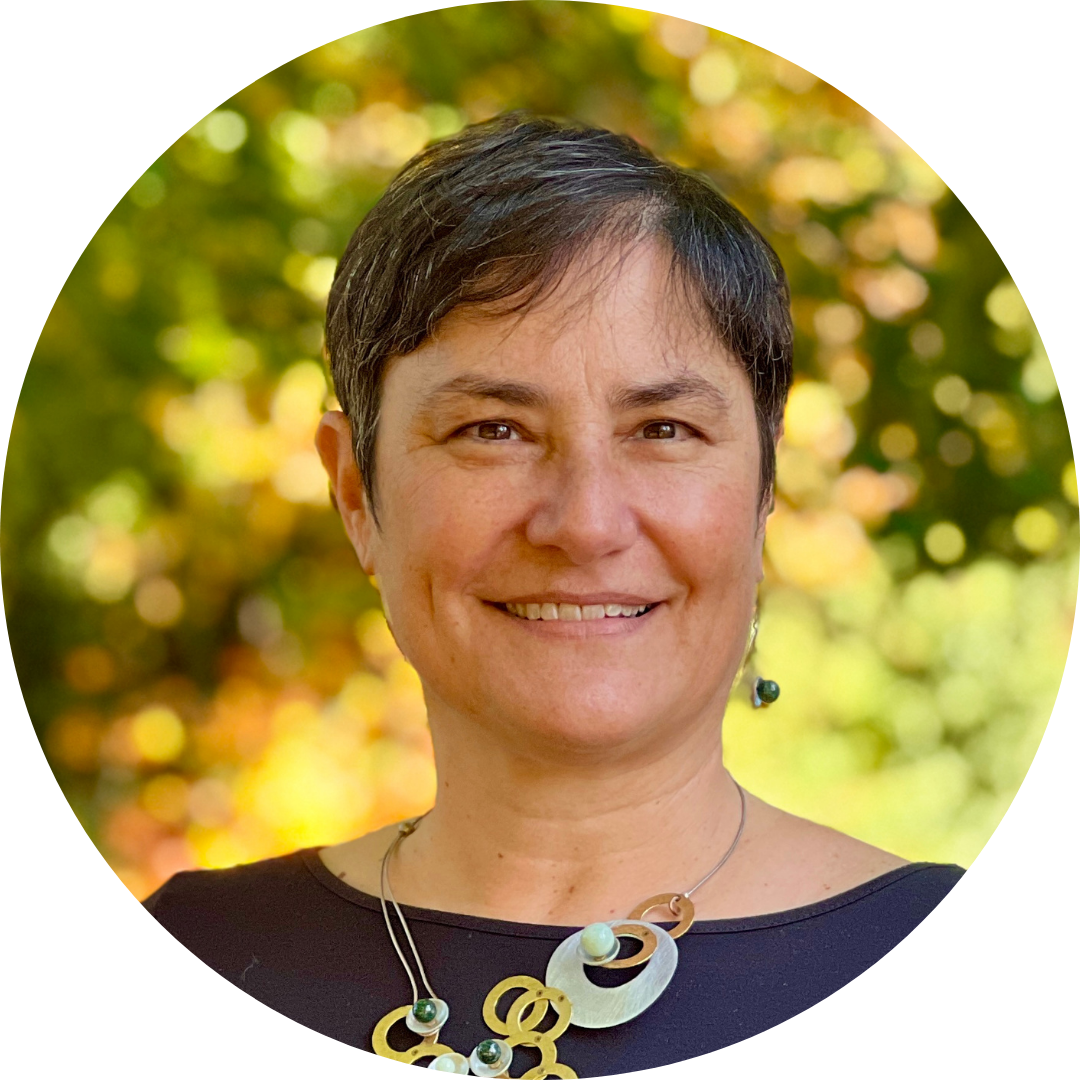Originally published on The Times of Israel.
How do we encourage a sense of belonging, of being part of a tribe, without descending into tribalism? How do we foster community life that is oriented inward and at the same time open to the wider world? How do we bridge differences — of political viewpoints, across generations — in a way that honors individuals and that keeps us together in community, despite those differences? How do we cultivate the capacity to live with discomfort in community with others, as an alternative to irreparable fracture?

Listen & watch to Rabbi Waxman's full remarks from Graduation here:
These are questions that Jews have been asking since the beginning of the Enlightenment, when we emerged from closed communities—closed usually through a combination of self-desire and mandated segregation—to become citizens of nation-states and the world. These are questions that Reconstructionist Jews have been wrestling with ever since Rabbi Mordecai Kaplan proposed setting aside the concept of Jews as the chosen people. These are questions that millions of people are asking in the current polarized environment.
The ”torah” I have been teaching intensively since the world-shattering events of October 7 and their dreadful aftermath has been about building “covenantal community across difference.” By this, I mean voluntarily choosing to co-create communities where we agree to a set of values and then work to articulate norms that prioritize our interdependence over our individuality, that value abiding relationships over drawing boundaries around what people look like or believe. Covenant is an ancient Jewish concept that places relationships at the center and that emphasizes hesed, lovingkindness, as a defining characteristic within those relationships. Covenantal community presumes that we have both the will and the capacity to articulate our values and our commitments—across generations and across our differences—and to find ways to learn from each other, to sometimes bridge the differences and sometimes not, and to commit to living with discomfort and even growing from it. Covenantal community means we consider where and when we submerge our individual aspirations on behalf of something bigger than ourselves. It is a form of ahavat hinam, love and caring freely given.
Creating or sustaining covenantal community can be easy to do in times of celebration and much harder in times of conflict. That is the power behind the concept of covenant. It’s binding. It’s grounded in hesed, lovingkindness. This religious metaphor mandates that we stay in deep relationship for the long-term instead of allowing current struggles or conflict to sever connections and communities. This is an obligation that I willingly accept.
Grounded in classical Reconstructionist commitments, covenantal community is one of the approaches that the Reconstructionist Rabbinical College uses to foster both our learning and social environments. It is not foolproof. The academic year following October 7 was very painful and brought to the surface some ways that RRC’s faculty and board needed to clarify and re-affirm our commitments. This past year, every person at RRC committed or recommitted to the principles of covenantal community, and the organizing theme of our year of shared learning was makhloket leshem shamayim, arguments for the sake of heaven, or how to engage with conflict constructively. We chose this focus because we needed it as a community AND because we firmly believe that learning to live with and lead amidst discomfort and even conflict are essential skills for today’s rabbinate, and tomorrow’s.
Creating or sustaining covenantal community can be easy to do in times of celebration and much harder in times of conflict. That is the power behind the concept of covenant. It’s binding. It’s grounded in hesed, lovingkindness.
While covenantal community is an ongoing, interactive process brought to life in day-to-day interactions, there are moments when it is fully on display. RRC’s graduation is one such moment. Graduation is the culmination of five or six years of study by passionate, creative individuals who are inspired to serve the Jewish people. The students graduating in 2025 started rabbinical school during the Covid pandemic and have persevered through many other unexpected disruptions with global consequences. They have worked in synagogues as educators and student rabbis, served on college campuses, run outreach programs to Jews in their 20s, organized multifaith efforts to alleviate poverty, served as a chaplain on a state police force, and so much more.
In addition, we honor Reconstructionist rabbis who have served the Jewish community for 25 years or more. This year’s cohort includes rabbis who have contributed decades of services in synagogues and on campuses, who have run national organizations and founded or led organizations promoting communal healing, who have written and edited books and seeded creative expressions in their communities. And we grant singular honorary degrees to accomplished individuals—an Orthodox scholar who has taught at RRC for decades and is an editor of an authoritative translation of a central Jewish text; a trailblazing rabbi who has written influential books and founded equally influential institutions; a communal leader who has been involved at every level of Reconstructionist life and who is a passionate advocate for people with disabilities. The range of sexual and gender identities, religious practices, theologies and, yes, political orientations is wide and varied.

Seth Rosen, Rabbi Aviva Bass (RRC '00), Rabbi Jonathan Malamy (RRC '00), Rabbi Joshua Lesser (RRC '99), Rabbi Pamela Jay Gottfried (JTS '93), Rabbi David Leipziger Teva (RRC '00), Rabbi Elyse Wechterman (RRC '00), Rabbi Deborah Waxman (RRC '99)
Front row, left to right:
Rabbi Gerald R. Fox (RRC '00), Rabbi Fredi Hess Cooper (RRC '00), Rabbi Mychal Heather Copeland (RRC '00), Rabbi Erin Deborah Sherman Hirsh (RRC '00)

In this graduation ceremony, we are enacting the breadth of the Reconstructionist movement, our commitment to diversity, our insistence on demonstrating and sustaining covenantal community. Given the polarization of this moment, in the Jewish community and the wider world, we are doing something that is not easily achieved and not greatly tolerated. Our approach is reflective of the shared commitments of everyone being graduated and honored and of folks across the Reconstructionist movement—shared commitments to kavod/mutual respect, to Torah and to the Jewish future. We hope you see this, are inspired by it and will join with us in fostering covenantal community.








